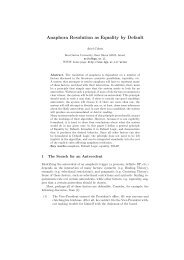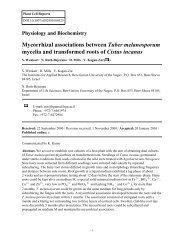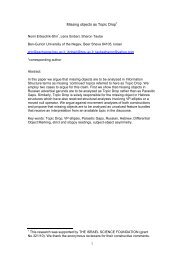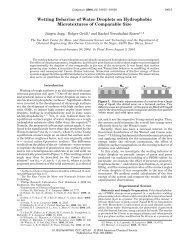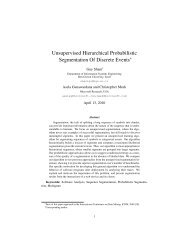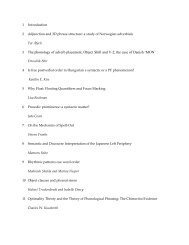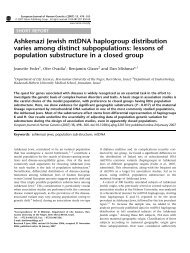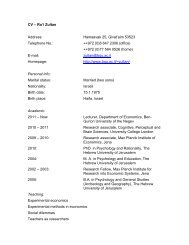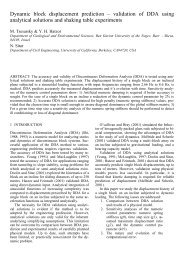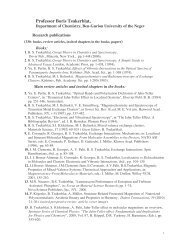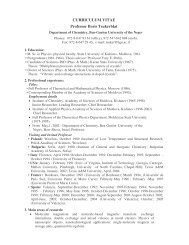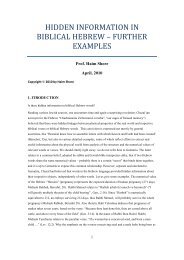Generics, Frequency Adverbs, and Probability
Generics, Frequency Adverbs, and Probability
Generics, Frequency Adverbs, and Probability
You also want an ePaper? Increase the reach of your titles
YUMPU automatically turns print PDFs into web optimized ePapers that Google loves.
e.g. usually would be true. This paper argues that all these seemingly<br />
unrelated puzzles have a single underlying cause: generics <strong>and</strong> frequency<br />
statements express probability judgments, <strong>and</strong> these, in turn,<br />
are interpreted as statements of hypothetical relative frequency.<br />
1 Eight Puzzles<br />
<strong>Generics</strong> <strong>and</strong> frequency statements 1 occur frequently in natural language.<br />
Much of our knowledge about the world is expressed using such sentences—a<br />
glance at an encyclopedia will easily provide myriads of examples. Yet it is<br />
far from clear what such sentences mean, i.e. what a given sentence entails,<br />
what it presupposes, <strong>and</strong> what it is that makes it true or false.<br />
Perhaps the most puzzling fact about these sentences is that they are,<br />
in a sense, both very strong <strong>and</strong> very weak. On the one h<strong>and</strong>, generics <strong>and</strong><br />
frequency statements are stronger than simple quantified statements, in being<br />
lawlike; on the other h<strong>and</strong>, they are weak—they are contingent on properties<br />
of the actual world, <strong>and</strong> (except, perhaps, for always) are even weaker than<br />
universal statements, since they allow for exceptions.<br />
With a view towards providing a solution to this general conundrum, I will<br />
consider eight specific puzzles in this paper. I will argue that these puzzles<br />
1 Following de Swart (1991) <strong>and</strong> others, I distinguish between frequency adverbs, such<br />
as usually <strong>and</strong> always, <strong>and</strong> other adverbs of quantification, such as twice. I have nothing<br />
to say about the latter type in this paper. I refer to a sentence containing a frequency<br />
adverb as a frequency statement.<br />
2



